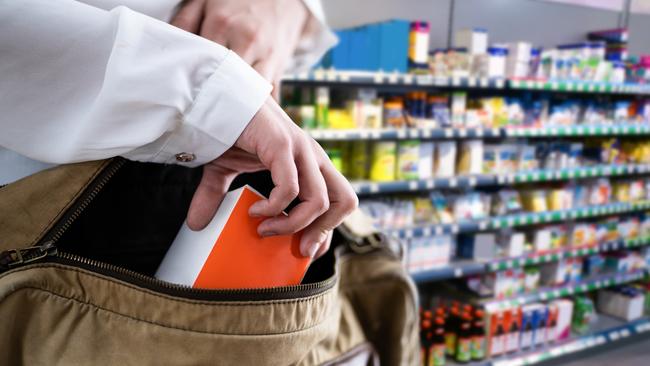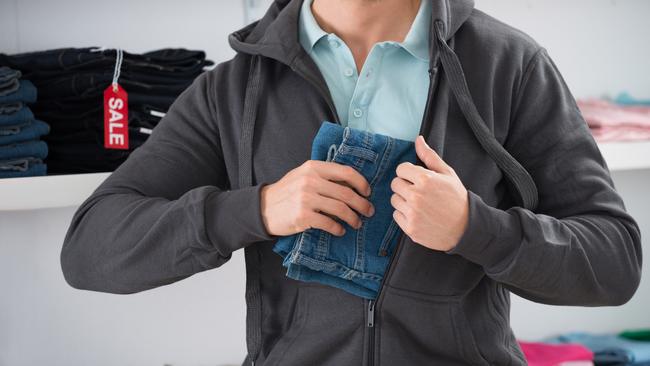Criminals are paying vulnerable people to steal from retail stores
Organised criminals are paying disadvantaged and vulnerable Victorians in cash and drugs to steal from stores for them — sometimes even giving them “shopping lists”.

Police & Courts
Don't miss out on the headlines from Police & Courts. Followed categories will be added to My News.
Organised criminals are hiring financially and socially disadvantaged people to steal thousands of dollars worth of goods each month as retail crime in Victoria continues to rise.
Victorians are currently shoplifting groceries, alcohol and other household goods at record levels, with the cost of living crisis putting the squeeze on those already doing it tough.
Crooks are also giving vulnerable people “shopping lists” and ordering them to steal the items from supermarkets and stores throughout the day or week.
They are then paid a couple of hundred dollars worth in cash, or in some cases, drugs to fuel their addiction.

In Victoria, 10 per cent of the thieves are causing more than 60 per cent of the monetary loss retailers are experiencing.
One in five retail crime events involve some sort of violence or aggression towards staff, with retailers noticing a 50 per cent spike in threatening behaviour.
Phil Thomson, chief executive of retail theft reporting agency Auror, said organised criminals were running huge schemes to maximise profits in Australia and overseas.
“It’s fairly organised in the sense that it’s repeat offenders doing this as their day job, they are targeting five to 10 stores a day,” he said.
“They’ll go and steal $1000 worth of baby formula from each store they go to, or they’ll target just manuka honey, or just red meat.
“There’s a lot of (criminal) groups who will get shopping lists and go to a particular house at the beginning of the day and say ‘I want you to go and steal these things’.
“(They’ll say) ‘I want you to go and get it and bring it back to me and I’ll pay you cash or drugs’, and unfortunately they do take advantage of some of the drug addicted people in society.
“It’s a fairly large organisation when you start to unpack the size and scale of it all.”
Shoplifting across the country is suspected to cost the industry at least $9bn each year, but that number could be significantly higher as much of the theft goes unreported, according to the Australian Retailers Association.

Mr Thomson said crooks often had their eyes set on stealing red meat, as they would go on to quietly sell it to pubs, restaurants and street market store holders.
Other offenders would often walk out of supermarkets with a trolley full of groceries, not even bothering to hide the fact they were nicking hundreds of dollars worth of goods.
“The way that they’re doing it has changed, it used to be a lot more covert, like hiding things in their jacket,” he added.
“It’s changed now to being a lot more brazen and blatant, just walking out of stores or pushing full trolley loads just out the front entrance.
“It’s not necessarily complex on how they’re doing this, but they’re doing it as such large scales.”





